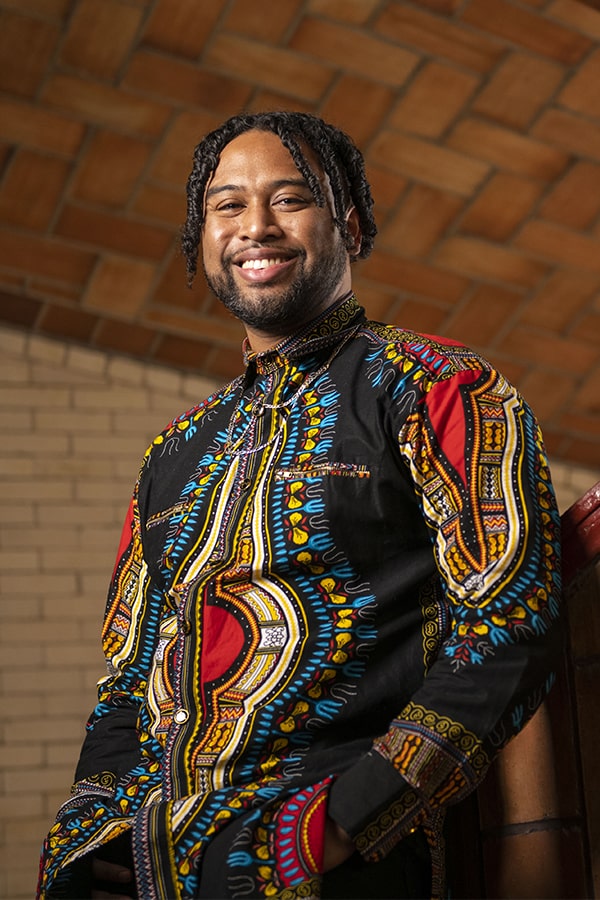Faculty Spotlight: Kevin Jarbo
By Stacy Kish
Kevin Jarbo completed his Ph.D. in CMU’s Department of Psychology in 2018 and joined the Department of Social and Decision Sciences as a postdoc turned assistant professor in 2021. His research explores how the risk of confirming a stereotype about a student's individual or group identity influences whether, and how much, they attempt to avoid potentially negative interpersonal experiences and interactions in academic settings.
Tell me about your research.
This year I am pivoting into social and decision sciences with two projects. One project is examining the role of stereotype threat on students’ decision making. Stereotype threat is the fear of confirming a negative stereotype for a group that you belong to. It can really impact a lot of students on campus based on gender, race, first-generation status, income or geographic background. A student might fear they might be judged negatively based on their identity and not feel safe interacting in their class and the university at large.
I also co-direct the Data Driven Diversity Lab along with Kody Manke and Geoff Kaufman. We are examining the recent focus on adding diversity statements to university content from syllabi to websites. Our students are exploring if people perceive these statements as genuine or how they impact the reader. Our students are coming up with different ways to evaluate how diversity statements are used and how they impact the student perception of the university environment.
How is your research adding to the greater field?
We have known for decades that stereotype threat is a particular issue in higher education and impacts academic achievement. From a psychological perspective, students are worried about being judged negatively, which will affect how they engage with their environment. Students might need academic help but lack trust or fear judgment from sources of help, reverting to less useful study strategies, like studying alone. My work weaves together social psychology and social and decision sciences to see if we can develop interventions that work to combat stereotype threat in academic settings.
Our work with diversity statements is really about outcomes. We are evaluating how people interpret these messages to determine their level of safety, trust and respect. It is important to determine how these statements, even if well intentioned, might backfire. We need messages that are authentic and backed up by the actions of their institutions.
How did you become interested in this topic?
I have experienced different kinds of discrimination in my academic career. I didn’t see a lot of representation as a Black man in my education and had to navigate this complexity to find role models that would be helpful. When I was a student, it was a challenge for my peers. Today, it is a challenge for my students and colleagues.
The university and college experience is a place to develop your identity so you are aware of these challenges and work to address them and change your environment for the better. I had some rough experiences in education, and I changed how I navigated structures and social barriers to achieve a space where I and now my students feel supported, uplifted and valued. I want to blaze an honest trail for people to follow.
What are you most excited to accomplish as a faculty member at CMU?
I understand what my representation means. I am excited to be the teacher at the front of the room that was missing in my college experience. I want to inspire and motivate my students so they pursue their own dreams, become better scholars and see themselves in front of the room. I am so excited to be at CMU, which has given me a great opportunity to constantly learn and grow as a scholar, individual and mentor.
What are your goals for the next generation of scholars?
I want to challenge the way people think. I want to be able to motivate this new generation of scholars. Many students come to CMU with passion to solve really big social problems, and I want to provide them with the toolkit to tackle these problems. I want students to feel empowered to make positive change.
The Faculty Spotlight series features new and junior faculty at the Dietrich College of Humanities and Social Sciences at Carnegie Mellon University. Stay tuned for our next installment to learn more about the dynamic and engaging research and scholarly work being conducted in the college.
